On February 26, 2026, Seico held the groundbreaking ceremony for the ready-built factory and warehouse for lease project at Lot CN2B, Nam Dinh Vu Industrial Park (Zone 2), Dong Hai 2 Ward, Hai An District, Hai Phong City.
The project is developed by Core 5 Vietnam, with a total area of 109,709 m² (nearly 11 hectares) — equivalent to approximately 15 standard football fields — demonstrating significant scale and a long-term commitment to sustainable industrial infrastructure development.
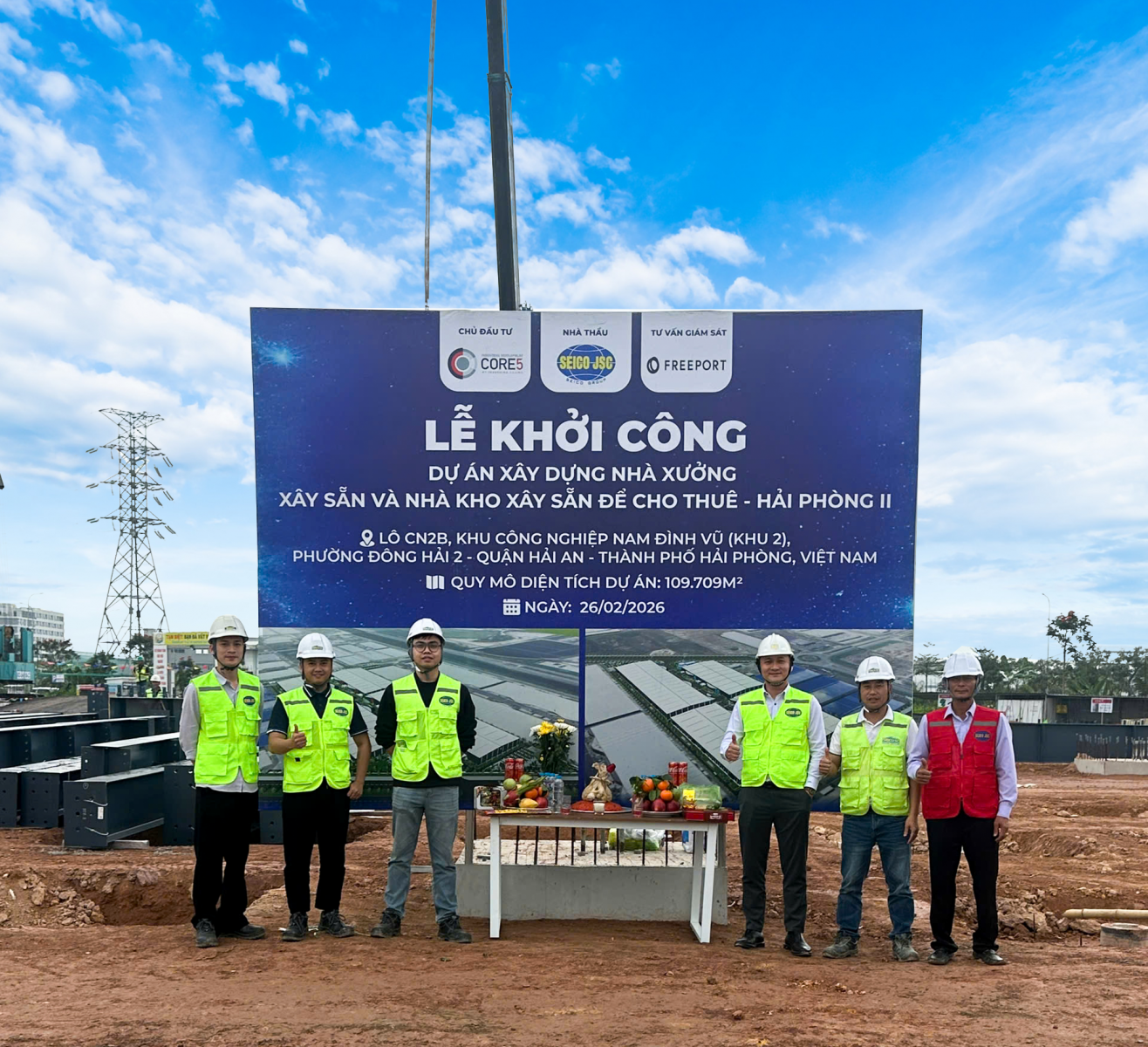
Project Groundbreaking in Hai Phong
Located in one of Hai Phong’s key industrial parks, the project is expected to enhance the supply of high-quality factory space, meeting the growing demands of domestic and international manufacturing and logistics enterprises.
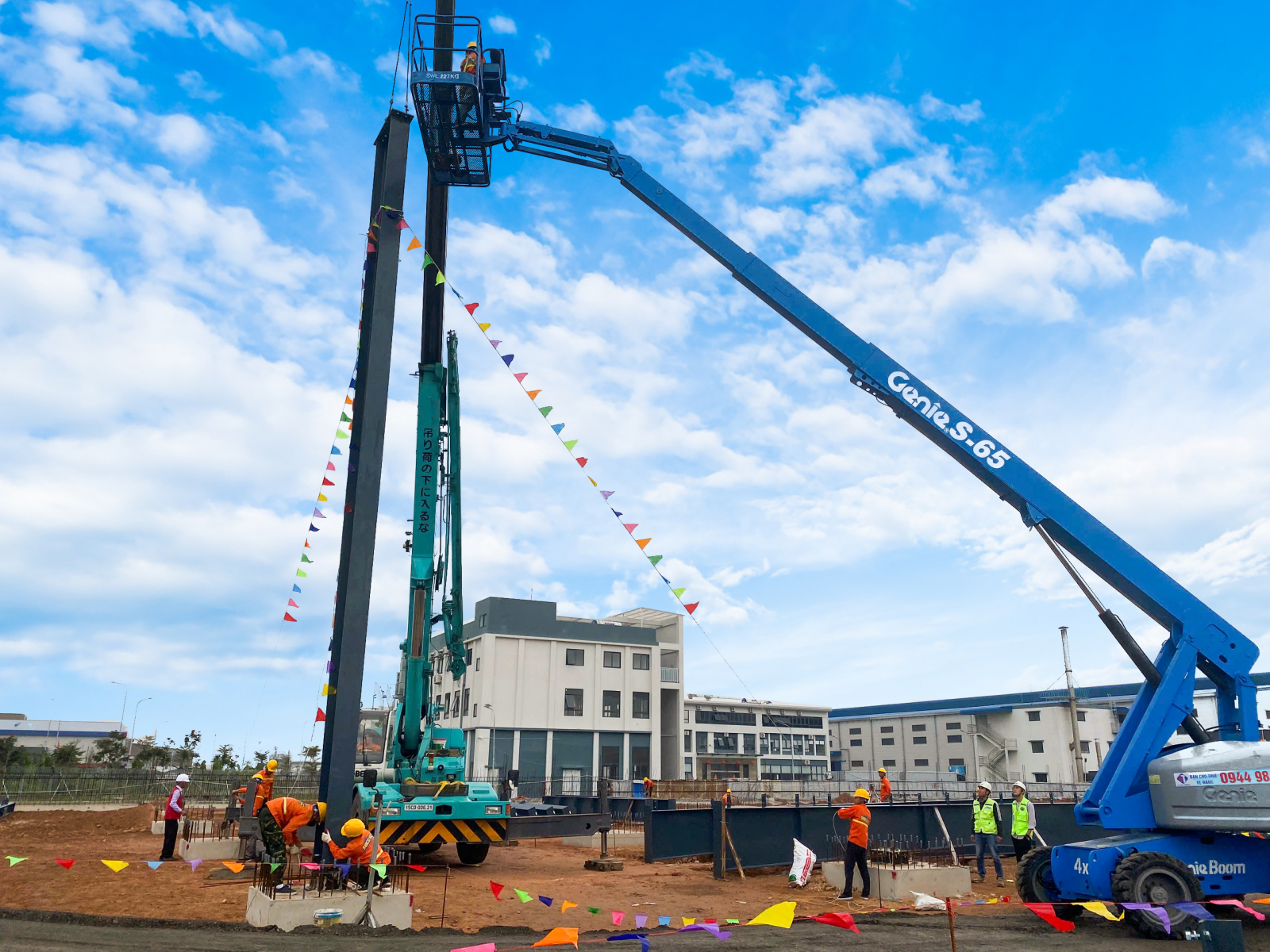
Project Groundbreaking in Hai Phong
The groundbreaking ceremony not only marks the commencement of a large-scale development but also reflects the investor’s confidence in Seico’s execution capability and extensive experience in industrial construction.
With a strong professional foundation and a high sense of responsibility, Seico is committed to delivering the project on schedule, ensuring superior quality, and creating sustainable value for the business community in Hai Phong.
Seico - True Steel - Complete Trust!
-------------------
SEICO STEEL
Website: http://seico.vn
Email: hnsales@seico.vn
YouTube: www.youtube.com/@SEICOJSC
LinkedIn: SEICO JSC trên LinkedIn
On February 26, 2026, Seico held the groundbreaking ceremony for the ready-built factory and warehouse for lease project at Lot CN2B, Nam Dinh Vu Industrial Park (Zone 2), Dong Hai 2 Ward, Hai An District, Hai Phong City.
The project is developed by Core 5 Vietnam, with a total area of 109,709 m² (nearly 11 hectares) — equivalent to approximately 15 standard football fields — demonstrating significant scale and a long-term commitment to sustainable industrial infrastructure development.

Project Groundbreaking in Hai Phong
Located in one of Hai Phong’s key industrial parks, the project is expected to enhance the supply of high-quality factory space, meeting the growing demands of domestic and international manufacturing and logistics enterprises.

Project Groundbreaking in Hai Phong
The groundbreaking ceremony not only marks the commencement of a large-scale development but also reflects the investor’s confidence in Seico’s execution capability and extensive experience in industrial construction.
With a strong professional foundation and a high sense of responsibility, Seico is committed to delivering the project on schedule, ensuring superior quality, and creating sustainable value for the business community in Hai Phong.
Seico - True Steel - Complete Trust!
-------------------
SEICO STEEL
Website: http://seico.vn
Email: hnsales@seico.vn
YouTube: www.youtube.com/@SEICOJSC
LinkedIn: SEICO JSC trên LinkedIn
On February 26, 2026, Seico held the groundbreaking ceremony for the ready-built factory and warehouse for lease project at Lot CN2B, Nam Dinh Vu Industrial Park (Zone 2), Dong Hai 2 Ward, Hai An District, Hai Phong City.
The project is developed by Core 5 Vietnam, with a total area of 109,709 m² (nearly 11 hectares) — equivalent to approximately 15 standard football fields — demonstrating significant scale and a long-term commitment to sustainable industrial infrastructure development.

Project Groundbreaking in Hai Phong
Located in one of Hai Phong’s key industrial parks, the project is expected to enhance the supply of high-quality factory space, meeting the growing demands of domestic and international manufacturing and logistics enterprises.

Project Groundbreaking in Hai Phong
The groundbreaking ceremony not only marks the commencement of a large-scale development but also reflects the investor’s confidence in Seico’s execution capability and extensive experience in industrial construction.
With a strong professional foundation and a high sense of responsibility, Seico is committed to delivering the project on schedule, ensuring superior quality, and creating sustainable value for the business community in Hai Phong.
Seico - True Steel - Complete Trust!
-------------------
SEICO STEEL
Website: http://seico.vn
Email: hnsales@seico.vn
YouTube: www.youtube.com/@SEICOJSC
LinkedIn: SEICO JSC trên LinkedIn
On February 26, 2026, Seico held the groundbreaking ceremony for the ready-built factory and warehouse for lease project at Lot CN2B, Nam Dinh Vu Industrial Park (Zone 2), Dong Hai 2 Ward, Hai An District, Hai Phong City.
The project is developed by Core 5 Vietnam, with a total area of 109,709 m² (nearly 11 hectares) — equivalent to approximately 15 standard football fields — demonstrating significant scale and a long-term commitment to sustainable industrial infrastructure development.

Project Groundbreaking in Hai Phong
Located in one of Hai Phong’s key industrial parks, the project is expected to enhance the supply of high-quality factory space, meeting the growing demands of domestic and international manufacturing and logistics enterprises.

Project Groundbreaking in Hai Phong
The groundbreaking ceremony not only marks the commencement of a large-scale development but also reflects the investor’s confidence in Seico’s execution capability and extensive experience in industrial construction.
With a strong professional foundation and a high sense of responsibility, Seico is committed to delivering the project on schedule, ensuring superior quality, and creating sustainable value for the business community in Hai Phong.
Seico - True Steel - Complete Trust!
-------------------
SEICO STEEL
Website: http://seico.vn
Email: hnsales@seico.vn
YouTube: www.youtube.com/@SEICOJSC
LinkedIn: SEICO JSC trên LinkedIn
On February 26, 2026, Seico held the groundbreaking ceremony for the ready-built factory and warehouse for lease project at Lot CN2B, Nam Dinh Vu Industrial Park (Zone 2), Dong Hai 2 Ward, Hai An District, Hai Phong City.
The project is developed by Core 5 Vietnam, with a total area of 109,709 m² (nearly 11 hectares) — equivalent to approximately 15 standard football fields — demonstrating significant scale and a long-term commitment to sustainable industrial infrastructure development.

Project Groundbreaking in Hai Phong
Located in one of Hai Phong’s key industrial parks, the project is expected to enhance the supply of high-quality factory space, meeting the growing demands of domestic and international manufacturing and logistics enterprises.

Project Groundbreaking in Hai Phong
The groundbreaking ceremony not only marks the commencement of a large-scale development but also reflects the investor’s confidence in Seico’s execution capability and extensive experience in industrial construction.
With a strong professional foundation and a high sense of responsibility, Seico is committed to delivering the project on schedule, ensuring superior quality, and creating sustainable value for the business community in Hai Phong.
Seico - True Steel - Complete Trust!
-------------------
SEICO STEEL
Website: http://seico.vn
Email: hnsales@seico.vn
YouTube: www.youtube.com/@SEICOJSC
LinkedIn: SEICO JSC trên LinkedIn
On February 26, 2026, Seico held the groundbreaking ceremony for the ready-built factory and warehouse for lease project at Lot CN2B, Nam Dinh Vu Industrial Park (Zone 2), Dong Hai 2 Ward, Hai An District, Hai Phong City.
The project is developed by Core 5 Vietnam, with a total area of 109,709 m² (nearly 11 hectares) — equivalent to approximately 15 standard football fields — demonstrating significant scale and a long-term commitment to sustainable industrial infrastructure development.

Project Groundbreaking in Hai Phong
Located in one of Hai Phong’s key industrial parks, the project is expected to enhance the supply of high-quality factory space, meeting the growing demands of domestic and international manufacturing and logistics enterprises.

Project Groundbreaking in Hai Phong
The groundbreaking ceremony not only marks the commencement of a large-scale development but also reflects the investor’s confidence in Seico’s execution capability and extensive experience in industrial construction.
With a strong professional foundation and a high sense of responsibility, Seico is committed to delivering the project on schedule, ensuring superior quality, and creating sustainable value for the business community in Hai Phong.
Seico - True Steel - Complete Trust!
-------------------
SEICO STEEL
Website: http://seico.vn
Email: hnsales@seico.vn
YouTube: www.youtube.com/@SEICOJSC
LinkedIn: SEICO JSC trên LinkedIn
Ngày 26/02/2026, Seico long trọng tổ chức lễ khởi công dự án nhà xưởng và nhà kho xây sẵn cho thuê tại Lô CN2B, Khu công nghiệp Nam Đình Vũ (Khu 2), phường Đông Hải 2, quận Hải An, thành phố Hải Phòng.
Dự án do Core 5 Vietnam làm chủ đầu tư, với tổng quy mô 109.709 m² (gần 11 hecta) – tương đương khoảng 15 sân bóng đá tiêu chuẩn – thể hiện tầm vóc và định hướng phát triển bền vững trong lĩnh vực hạ tầng công nghiệp.

Khởi công dự án tại Hải Phòng
Tọa lạc tại một trong những khu công nghiệp trọng điểm của Hải Phòng, dự án được kỳ vọng sẽ góp phần gia tăng nguồn cung nhà xưởng chất lượng cao, đáp ứng nhu cầu ngày càng lớn của các doanh nghiệp sản xuất và logistics trong nước và quốc tế.

Khởi công dự án tại Hải Phòng
Lễ khởi công không chỉ đánh dấu bước khởi đầu của một dự án quy mô lớn, mà còn là minh chứng cho sự tin tưởng của Chủ đầu tư Core 5 Vietnam đối với năng lực triển khai và kinh nghiệm thi công công trình công nghiệp của Seico.
Với nền tảng chuyên môn vững chắc và tinh thần trách nhiệm cao, Seico hướng đến mục tiêu hoàn thành dự án đúng tiến độ, đảm bảo chất lượng và tạo nên giá trị bền vững cho cộng đồng doanh nghiệp tại Hải Phòng.
Seico - Chuẩn chất thép - Trọn niềm tin!
-------------------
SEICO STEEL
Website: http://seico.vn
Email: hnsales@seico.vn
YouTube: www.youtube.com/@SEICOJSC
LinkedIn: SEICO JSC trên LinkedIn
Amid the vibrant and joyful atmosphere of the first days of the Lunar New Year, Seico’s offices and factories simultaneously held spring opening celebrations and launch ceremonies filled with energy and determination.
With great excitement, the Board of Directors and all employees raised their glasses to welcome the New Year and officially activate a new journey full of ambition. Bright red lucky envelopes were presented to employees, symbolizing wishes of good fortune and prosperity.
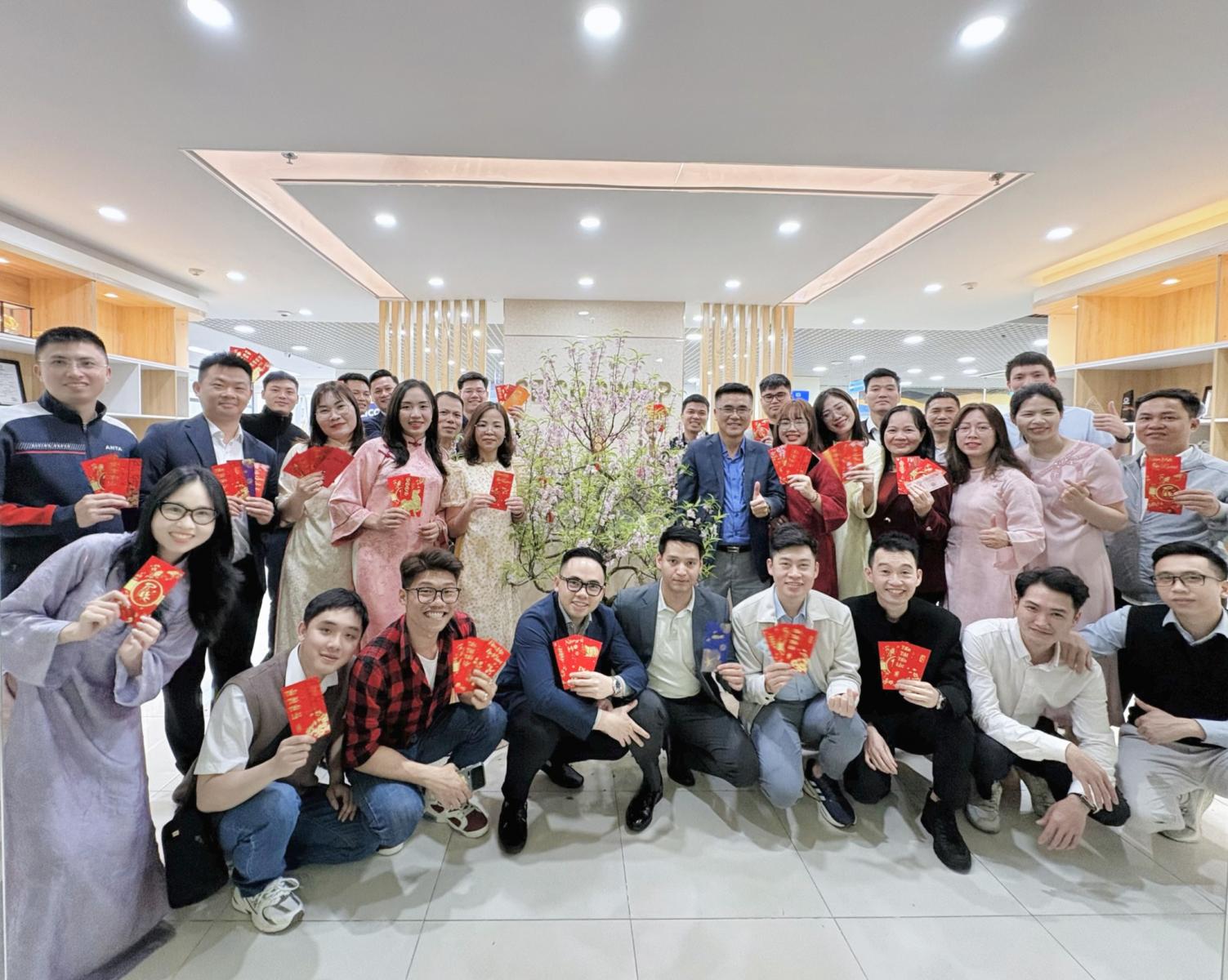
Hanoi Office celebrated the Lunar New Year kick-off for the Year of the Horse.
At the factory launch ceremony, the greeting “Success upon arrival” echoed as a signal of a smooth and promising start.
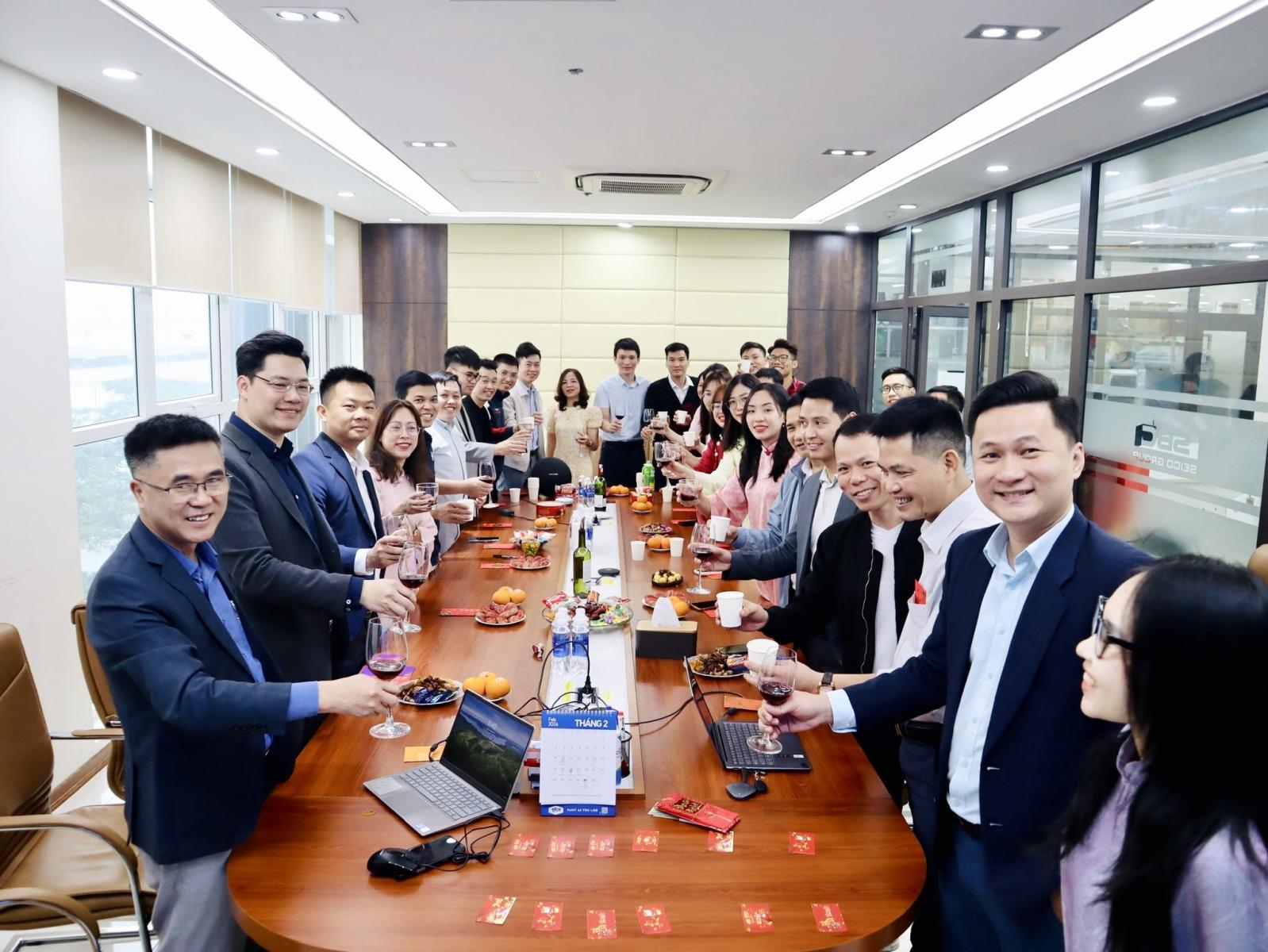
Hanoi Office celebrated the Lunar New Year kick-off for the Year of the Horse.
The opening-year slogan, “Seico – Unity, Success,” was chanted in unison by all employees, demonstrating a strong spirit of solidarity and close collaboration from the very first days of the year. The traditional first-weld ignition ceremony at the factories was also an essential highlight. As the welding flames flared to life and the machines began running smoothly and steadily, their rhythmic hum resembled the heartbeat of early spring—heralding a year of safe, stable production ready to accelerate.
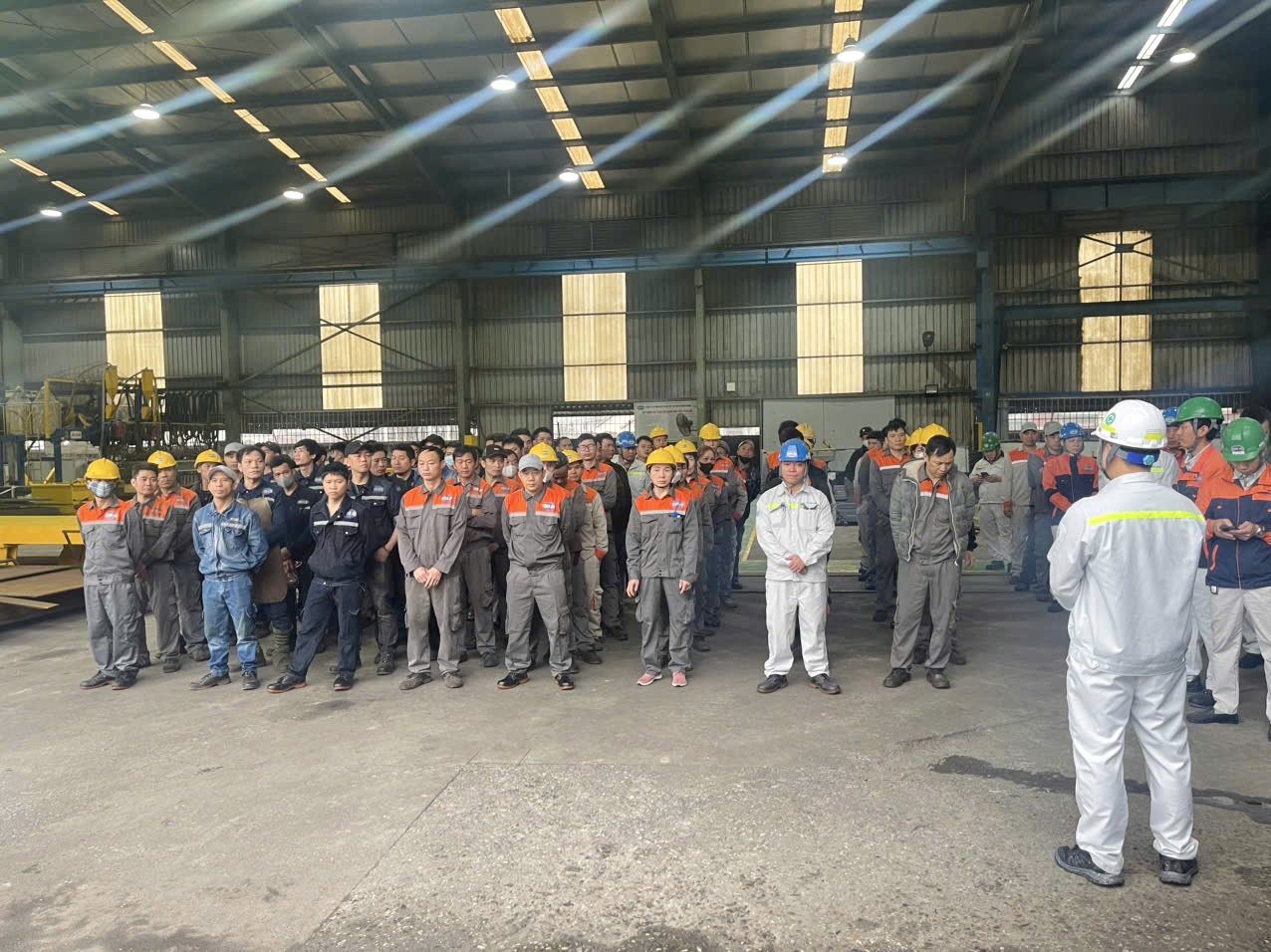
The Factory held a spring launch ceremony to welcome the Year of the Horse
With powerful energy and the aspiration to rise in the Year of the Horse, Seico Group moves forward together—strengthening its inner capabilities and standing ready to create remarkable milestones of growth in 2026.
SEICO - True Steel - Complete Trust
-------------------
SEICO STEEL
Website: http://seico.vn
Email: hnsales@seico.vn
YouTube: www.youtube.com/@SEICOJSC
LinkedIn: SEICO JSC trên LinkedIn

 Vietnam
Vietnam  English
English  Japan
Japan  Korea
Korea  China
China  Indonesia
Indonesia  Thailand
Thailand 

